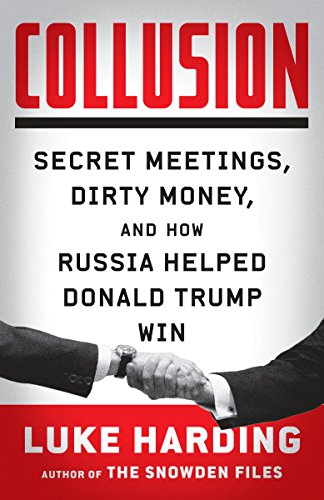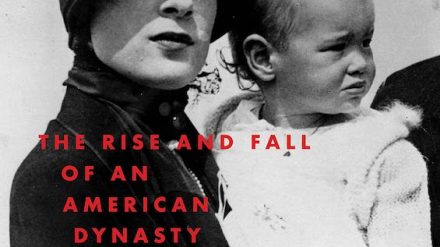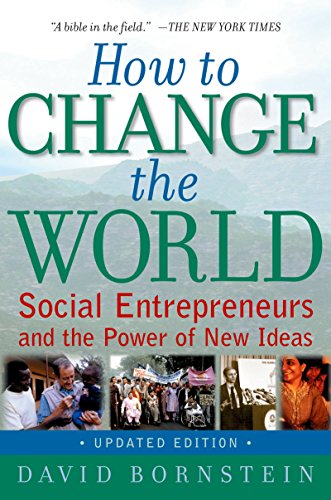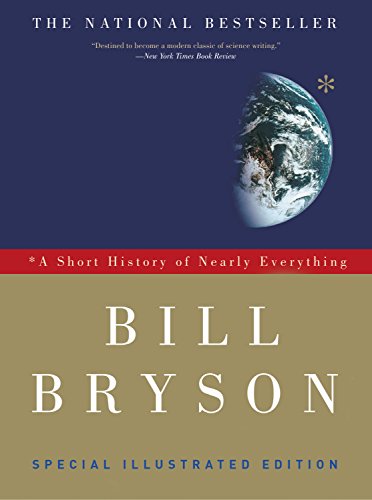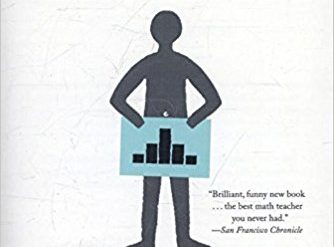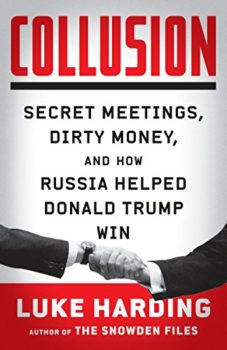
If the question in the above headline strikes you as over the top, you might feel differently after reading the Steele Dossier and Collusion. In the book, Guardian reporter Luke Harding analyzes and comments on the dossier, adding his own, independent findings. Even if you follow the day-to-day news closely, you’re unlikely to be aware of the full extent of the evidence against Donald Trump and his campaign for the White House. Certainly, I wasn’t.
Much of what Harding writes in Collusion: Secret Meetings, Dirty Money, and How Russia Helped Donald Trump Win has been revealed before. But the picture in the aggregate is devastating. The case against Trump, members of his family, business partners, friends, and staff members is far more wide-ranging than initial reports suggested. The Watergate scandal pales by comparison. Collusion between the Trump campaign and the Russian government is only a small piece of the picture.
Before you dismiss the questions in my headline as overblown, please note what I mean by the term “agent.” That label is often mistakenly taken to mean a paid employee of an intelligence service. More properly, an agent (or “asset”) is someone who assists an employee of an intelligence service (called an “officer”) by providing sensitive information, or by helping the officer in some other way. Agents are not necessarily conscious of their role, and they may not receive compensation in any form. Agents may be either foreign nationals or share the officer’s nationality.
Collusion: Secret Meetings, Dirty Money, and How Russia Helped Donald Trump Win by Luke Harding (2017) 370 pages ★★★★★
The Steele Dossier: Trump Intelligence Allegations by Christopher Steele (2017) 34 pages
Here’s the gist of the charges
Here’s the gist of what I’ve concluded from reading Harding’s book as well as the Steele Dossier:
- There is no doubt that Donald Trump has been acting as an agent of Russian intelligence for many years, starting long before he ran for President. In multiple ways, he has acted in support of Russian foreign policy to the detriment of the United States. Trump’s moves to deepen the divisions within the American public and undermine our foreign policy by alienating US allies and advancing Russian strategic aims are far more serious crimes than his campaign’s collusion with the Russians.
- There is a prima facie case for collusion between the Trump campaign and the government of Russia, as Robert Mueller has no doubt discovered. What’s unknown at this point is whether Donald Trump was actively aware of the collusion, although it seems impossible to believe that he wasn’t.
- Trump’s crimes involving Russia long predate his run for the White House. Through his real estate activities, he has laundered tens of millions of dollars, and maybe much more, for Russian gangsters and the Russian-government-allied superrich called “oligarchs.” It appears likely that Russian money has bailed Trump out on more than one occasion.
And there’s more
- Hillary Clinton lost the Presidency for many reasons, not the least of them her own poorly run campaign, Republican vote suppression, and the vicious 25-year-crusade conducted against her by the Right. However, despite these factors, it’s entirely possible that she would have won anyway had it not been for Russian intervention. Remember: she won the popular vote, only losing a few key states by a margin in the tens of thousands of votes.
- It appears that Donald Trump is vulnerable to blackmail by Vladimir Putin both because of his illegal financial activities and because of sexual misconduct caught on film or videotape by Russian intelligence. Admittedly, the allegations in the Steele Dossier about sexual perversion have not been proven. They may never be. However, given Trump’s contemptuous behavior toward women and the enduring practices of Russian intelligence to bug the hotel rooms of prominent visitors, these charges seem all too credible. In any case, the Putin regime has reportedly opted not to release the damaging evidence it possesses about Trump’s misbehavior—probably for reasons that are now abundantly obvious.
So, how did all this come about?
You might wonder how these tragic circumstances could have come about, but it’s not really all that complicated. “Russians make up a pretty disproportionate cross section of a lot of our assets. We see a lot of money pouring in from Russia.” Donald Trump Jr., made those comments in a speech at a real estate conference in Moscow in 2008. And Richard Dearlove, the head of MI6 from 1999 to 2004, told Britain’s Prospect magazine in an interview on April 17, 2017: “What lingers for Trump may be what deals—on what terms—he did after the financial crisis of 2008 to borrow Russian money when others in the West would not lend to him.” The New Yorker has published numerous articles on Trump’s scandalous financial affairs involving Russia and the former Soviet republic of Azerbaijan.
Neither Collusion nor the Steele Dossier is a work of great literary merit. The Dossier is written in the inimitable style of bureaucratic memos (although it is far more readable than most). And Harding’s book was clearly rushed into print with minimal if any editorial oversight. Both works feature large casts of characters with long Russian names. It’s sometimes difficult to follow the thread of the story. In fact, there are so many threads to this story that you could weave a blanket out of them. Robert Mueller has his work cut out for him.
About the authors
Luke Harding is a foreign correspondent for The Guardian. He reported from Russian from 2007 to 2011, when he was deported for writing critically about Vladimir Putin. He calls Russia a “mafia state,” the title of his book about his experiences in Russia. Harding is also the author of The Snowden Files: The Inside Story of the World’s Most Wanted Man.
Christopher Steele worked for MI6 (Britain’s Secret Intelligence Service) for more than twenty years before cofounding the private intelligence firm Orbis Business Intelligence. He has become known to the public as the author of the so-called Steele Dossier—a compilation of 17 memos he wrote for US clients between June 20 and December 13, 2016. The 35-page Steele Dossier may be found here. (Or Google “Trump Intelligence Allegations.”)
For related reading
Click here for more Good books about Vladimir Putin, modern Russia and the Russian oligarchy.
You might also be interested in reading my posts, Donald Trump: populism, or fascism? and How Steve Bannon sold the alt-right to Donald Trump and made history. In fact, this is one of Top 5books about Donald Trump and his impact on American democracy.
Like to read books about politics and current affairs? Check out Top 10 nonfiction books about politics.
And you can always find my most popular reviews, and the most recent ones, on the Home Page.

